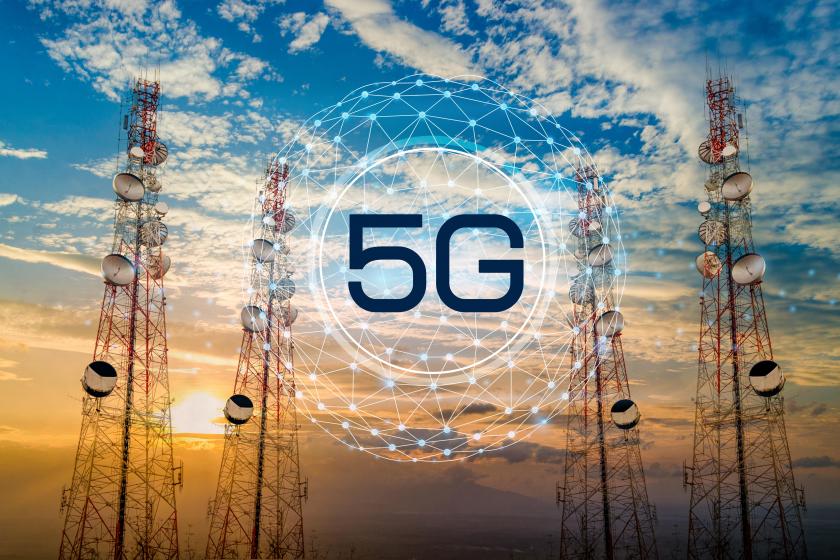European Telcos Seek 5G Network Fees from Top Internet UsersEuropean Telcos Seek 5G Network Fees from Top Internet Users
The operators’ proposal is before the European Commission. Meta objects and warns the EC of damage to business and consumers. What’s the impact on U.S. enterprises?
May 19, 2023

A group of telcos in Europe is floating a plan whereby big tech companies accounting for over 5% of a telco’s peak average internet traffic should help pay for the rollout of 5G and broadband access.
The telcos' proposal is in draft mode, according to a report this week by Reuters. It raises questions as to whether the “build it and customers will spend” monetization approaches are enough for a profitable and justifiable business case.
The report claims the telco proposal is part of the feedback to the European Commission that began an inquiry into the issue in February, with a deadline for responses this Friday. It also claims the document was compiled by telco lobbying groups GSMA and ETNO.
Making the case for 5G fees
Despite the marketing of 5G, with its superfast connections, super low latency, and purported ability to help transform the way enterprises do business, some telcos are struggling to justify the big-ticket undertakings by themselves or are uncertain whether the 5G services they offer will more than offset the initial investment.
Heavy internet users such as social media and video streaming companies Google, Meta, Amazon, Netflix, Microsoft, and Apple would seem to be most adversely affected by the so-called network fees.
Meta objects
The one public response opposing the move is in this blog by Markus Reinisch, Vice President, Public Policy, Europe and Global Economic Policy, Meta. He claims network fee proposals will ultimately hurt European businesses and consumers. Social media companies are among the top bandwidth users globally. Meta submitted its response to the European Commission's exploratory consultation on network fees.
Among the listed takeaways, the Meta executive contends:
Network fee proposals misunderstand the value that content platforms bring to the digital ecosystem; and
We urge the (European) Commission to consider the evidence, listen to the range of organizations who have voiced concerns, and drop these proposals.
“We support the Commission’s goal of “ensuring access to excellent connectivity for everyone,” began Reinisch. “However, proposals by a handful of telecom operators to be cross-subsidized by content application providers (CAPS) are fundamentally flawed.
Meta sees only downsides of the network fee proposal, calling fees to telecoms “a private sector handout.” The company sees fees as operators charging twice for the same infrastructure already charging consumers for internet access and potentially adding fees.
"We encourage the Commission to deeply examine the negative impacts of the telco-led proposals," said Reinisch. He went on to explain why the creation of what is effectively a required private sector handout for selected telecom operators would lead to bad outcomes for European businesses and consumers, disincentivize innovation and investment, and distort competition.
Expert insight into the 5G market
It’s early to get a take on what the telco proposal means to U.S. firms. “We remain optimistic about the European 5G RAN market and expect this segment to advance another 60% by 2025, with or without any contributions from the tech players,” explained Stefan Pongratz, Vice-President at Dell’Oro Group, a global market research and analysis firm. He specializes in 5G RAN, CBRS, Mobile RAN, Open RAN, Private Wireless, and Telecom Capex.
Pongratz, who has not yet read the telcos' proposal, provided constructive advice to operators. "Even if 5G by itself is, as expected, not fueling any material revenue growth, the reality is that providing connectivity is a profitable business. In the meantime, he claims, "operators that take advantage of the incremental bandwidth available in the upper mid-band will be in a better position from a cost, performance, and future growth perspective than those that don't."
The cost of 5G – U.S. edition
Moving to 5G incurs many costs. On the cost side alone, telcos around the world have, or are planning, to shut down 3G and or 2G networks for the spectrum and related resources to enable broad deployment of 5G. The costs are even higher when the cost of acquiring spectrum that can be used for 5G through auctions is added in.
Challenges monetizing network rollouts and service deployments are faced in the U.S. as well. In many cases, telecoms have teamed with equipment, construction, spectrum, monitoring, and integration companies to create private 5G network services as well as varying flavors of managed offerings. However, the operators have neither revealed their specific monetization expectations nor their results.
The costs of going with 5G are playing a big role in the decision making of telcos in many countries. While many, like the U.S. Japan and China are all in, much of the continent of Africa still relies on low-speed 2G. In fact, 2G networks are not being shut down in many countries as customers with IoT deployments that can’t justify the cost and don’t need the superfast speed of 5G rely on the second generation wireless technology.
Related articles:
Read more about:
5GAbout the Author
You May Also Like




